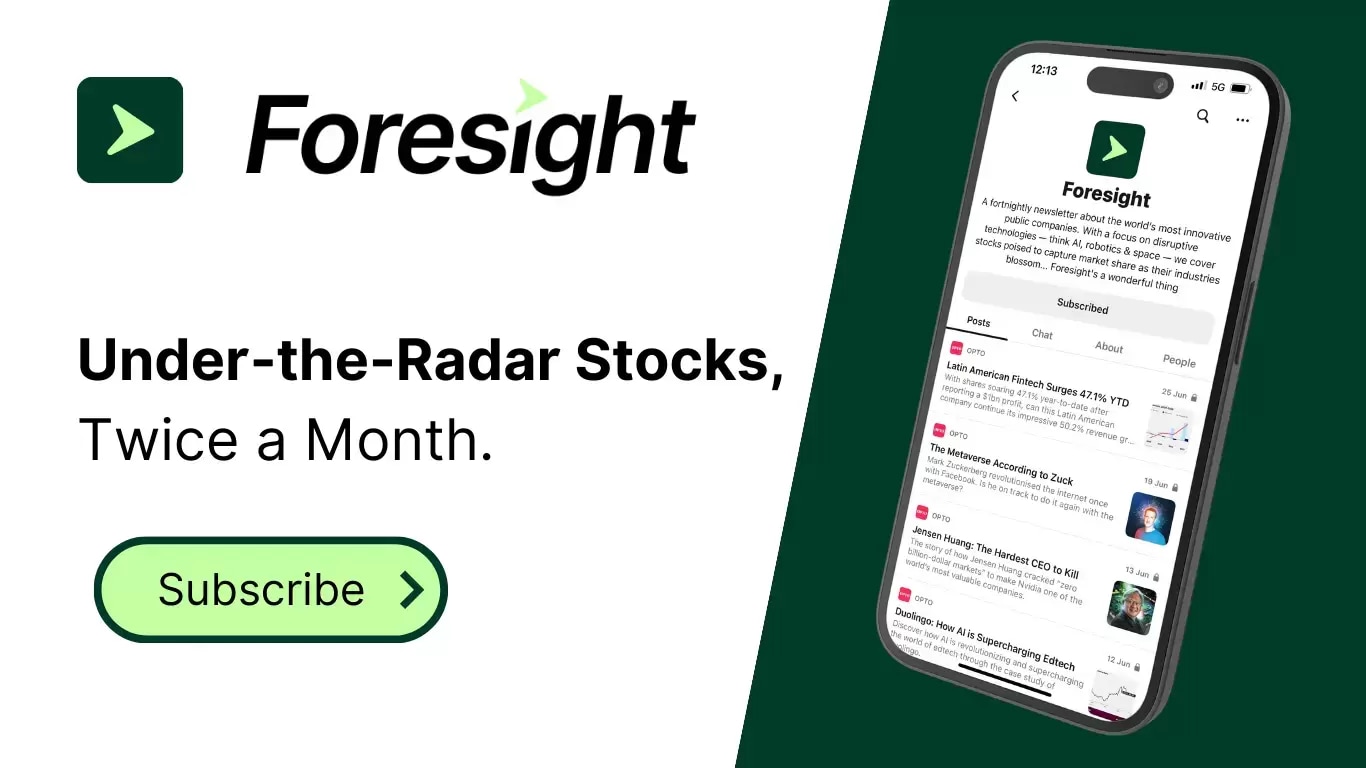There are many investment newsletters on Substack, but few offer real value. Here, OPTO picks seven of the best investing newsletters on Substack and interviews their authors about their unique approaches to investing.
1. Doomberg
Known for its iconic green chicken avatar, Doomberg provides over 240,000 subscribers with “concise, entertaining, and provocative articles centered on energy, finance, and geopolitics”.
Its anonymous authors launched the newsletter in April 2021, following on from long careers in the industrial sector.
“As trillions of taxpayer dollars and myriad government mandates were thrown at the energy transition, we saw that there was a practical voice missing in the traditional media,” Doomberg told OPTO. “We started writing in that voice, with the freedom of having no master to serve beyond the foundation of our own principles, experience, and work ethic.”
Today, Doombergis the most widely read finance publication on the Substack platform.
2. Jonah’s Growth Stock Deep Dives
Jonah Lupton started his Growth Stock Deep Dives newsletter to share his research and stock ideas.
In his own words, Jonah looks for “undiscovered and/or undervalued companies, with strong fundamentals, compelling valuations and upcoming catalysts.”
He told OPTO that his research methodology and ongoing diligence have yielded him “triple-digit returns in three of the last five years”, and that his portfolio has gained more than 2000% over the period.
His 40,000 subscribers get access to “deep dives, mini deep dives, and quarterly updates” and Jonah’s up-to-date portfolio with real-time activity, charts, and commentary.
3. Compounding Quality
Compounding Quality is all about helping other investors invest in the best companies in the world.
Author Pieter Slegers’ philosophy hinges on a quote by Warren Buffett: “It’s far better to buy a wonderful company at a fair price than a fair company at a wonderful price.”
Elaborating further on this concept, Pieter views investing as an exercise in discovering quality companies. His view is that quality investing is one of the few approaches that enable a buy-and-hold strategy. Value investors buy stocks that are undervalued — therefore, according to Pieter, value investors should sell as soon as their stocks gain in price to restore them to their fair value.
“Compounding Quality is all about investing in the best companies in the world. We do this via 3 steps: Buy wonderful companies, led by excellent managers, trading at fair valuation levels,” Pieter told OPTO.
Today, Compounding Quality has more than 280,000 email subscribers.
4. Citrini Research
“You’ll never have to ask: ‘What’s the trade?’”
This is the core promise from James van Geelen, CEO at Citrini Research and Managing Member of Citrinitas Capital Management. He told OPTO that the newsletter “started as just me being very, very bullish on a specific theme and evolved into sharing a specific way of investing: thematic equity based on basket exposures of these megatrends in the market.”
The three original megatrend themes were artificial intelligence (AI), GLP-1 weight loss drugs, and US fiscal supremacy. These are now joined by the 2024 US presidential election, biopharmaceutical innovation, ‘Good Financials vs Not-So-Good Financials (insurance and banks)’, Chinese economic stimulus, and water.
James is an advocate of growth investing, but his approach is fused with the principles of value investing. He told OPTO that identifying a megatrend that will increase a company’s earnings potential by more than the market consensus is also a form of value investment.
5. The Bear Cave
Since developing a passion for short selling in college, Edwin Dorsey has developed a knack for identifying bad businesses.
In The Bear Cave, his short-selling newsletter, Edwin focuses on serious problems that the market is missing, such as predatory billing strategies or negligent safeguarding.
Edwin believes that “the best short sellers have a passion” for identifying bad businesses. As he recently told OPTO Sessions: “There’s a lot of easier ways to make money in the market than by being a short seller.”
With The Bear Cave, Edwin sets out to be a qualitative rather than quantitative source of information. “I don’t give price targets. I don’t short it myself. I really just say, ‘This is what I’m good at, this is what I’m going to focus on, and I’ll let everybody else do the rest.’”
6. The Lead-Lag Report
The Lead-Lag Report sets out to provide long-term investors with detailed strategic analysis and tactical investment opportunities. It is especially focused on helping investors navigate risk-on/risk-off dynamics in an era of elevated market volatility.
It is written by Michael Gayed, Portfolio Manager at Tide Financial Group.
“The best you can do when it comes to markets is identify the conditions under which volatility is likely to change,” Gayed recently told OPTO Sessions. “Because volatility changes, you can switch your long-only mix into things which are either less volatile or could benefit from volatility for a moment in time.”
As a result, his research focuses on risk-on/risk-off signals and how these are expressed. “One thing I’m not going to do is tell you ‘Here’s something that’s going to 10X your return’ because that you should be sceptical of.”
7. Stenos Signals
Stenos Signalsis a “maverick Scandinavian macro and geopolitical research platform” with over 23,000 subscribers.
Priding itself on being completely independent of commercial or financial interests, Stenos Signals aims to provide “out of the box” macro thinking along with actionable, data-driven research.
Founder and CEO Andreas Steno told OPTO that his team is “still not observing any noticeable recessionary trends in our numerous proprietary live gauges for the US economy, and there are even pockets of re-acceleration to be found.
“It’s not that we are blind to the recession risk highlighted by many; we just find the risk/reward incredibly weak for betting on right now. Everything we do is about getting a time edge on markets, and nothing in our live data suggests that you need to flip your allocation to defensive or negative positions yet.”
Continue reading for FREE
- Includes free newsletter updates, unsubscribe anytime. Privacy policy






